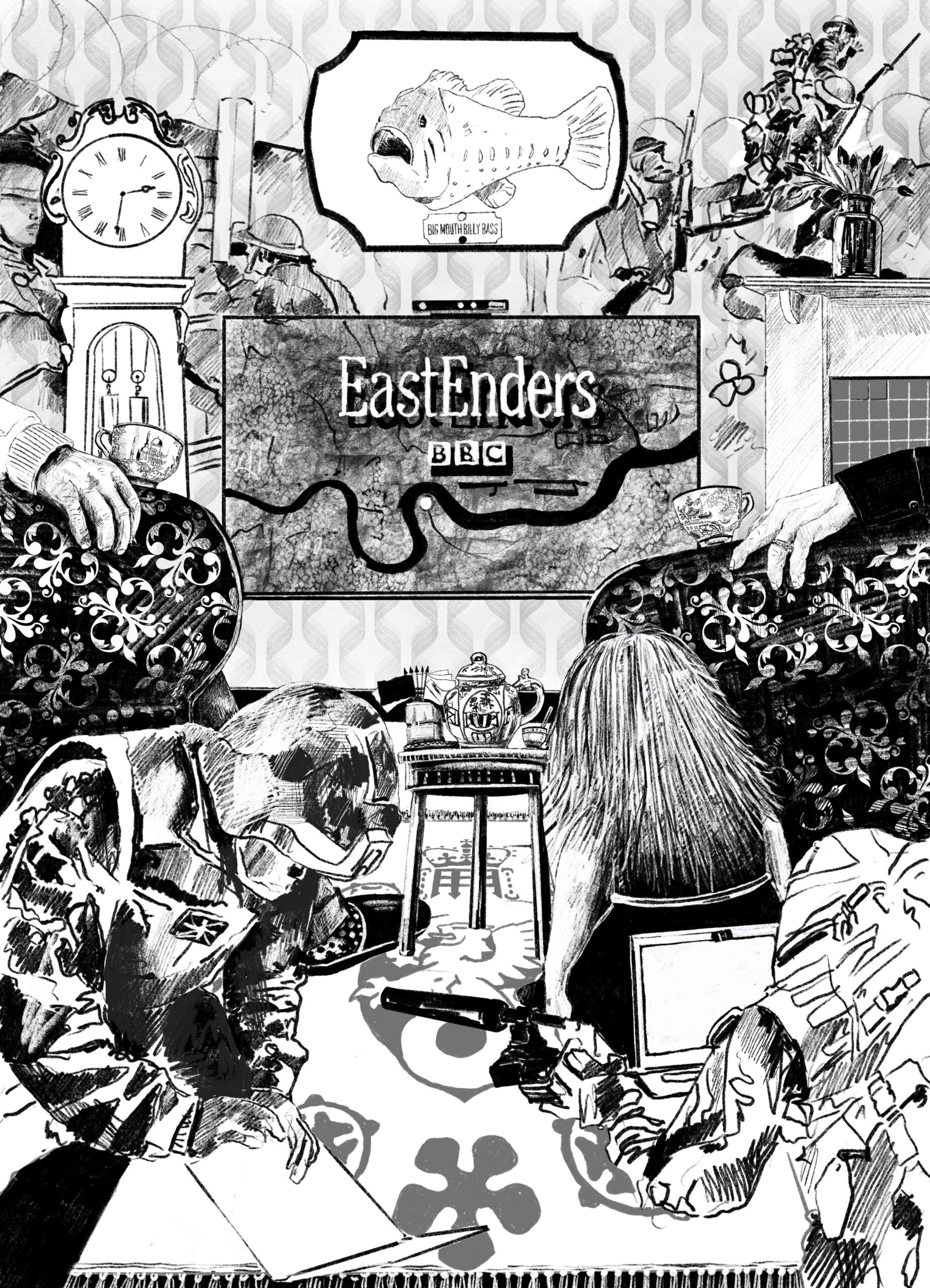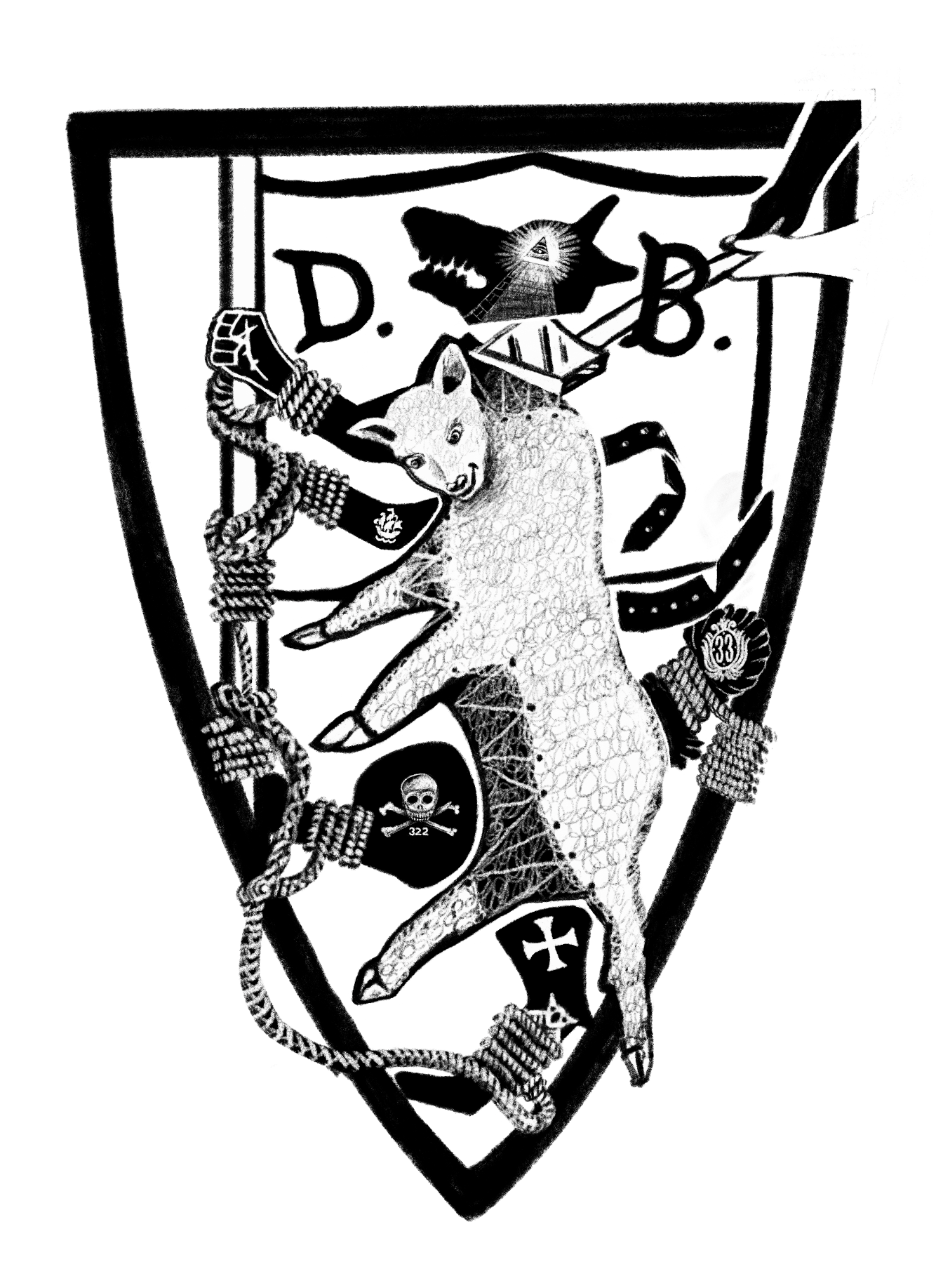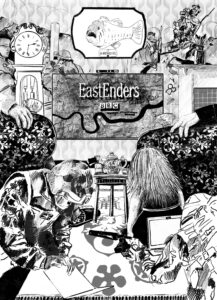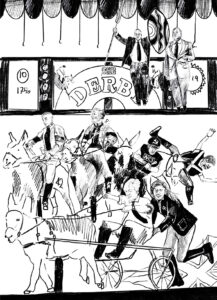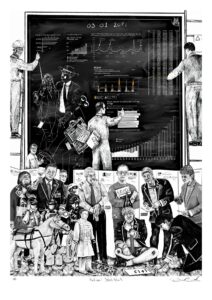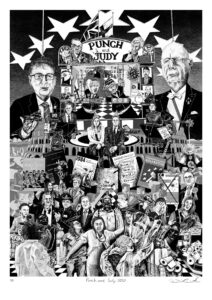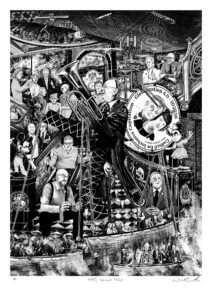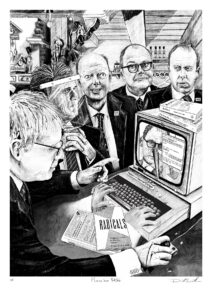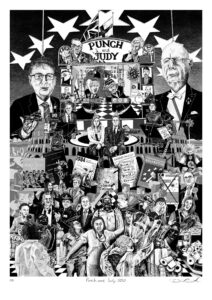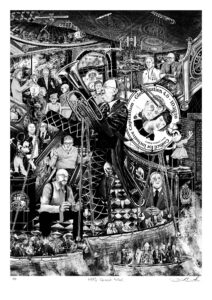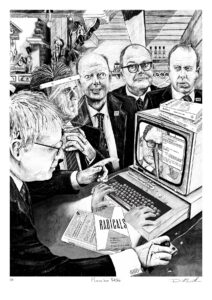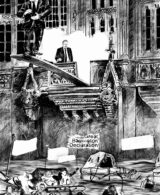“PHONETICALLY SPEAKING” To reflect the fast pace of world news, my blog is probably best served as a stream-of-consciousness text. Fast and unadulterated. With this approach, and on first encounter, text might not seem to scan. This is because I am dyslexic. Instead of keeping the proof-readers busy, I would rather let my blog updates of my visual work stand as a record of my experience of dyslexia, which I am keen that you now get to enjoy too. Unlike some news outlets, I hereby excuse myself the need for a ‘corrections’ section! The excitement of a new language is something I’m quite familiar with, and it is with this ‘joie de vivre’ that I am delighted to guide you through my thought and work processes, more phonetically (than fanatically) speaking.
DEFEND THE REALM
